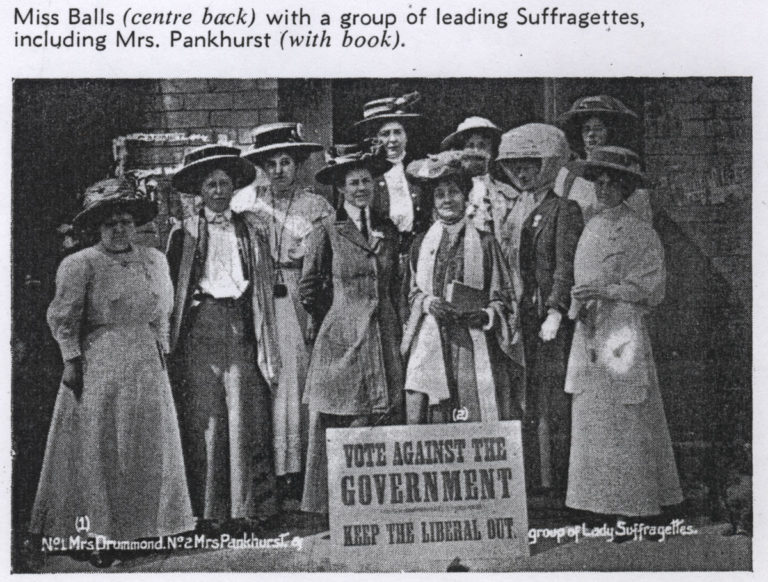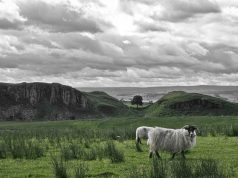International Women’s Day 2025, on March 8, is focusing on accelerating action for women’s equality.
One local woman who devoted her life to this cause was suffragette and community activist Norah Balls.
The daughter of a North Shields mariner, she became an active member of the Women’s Social and Political Union (WSPU), led nationally by Emmeline Pankhurst. She later became involved in many aspects of community life focusing on supporting and improving the lives of girls, women, and families. For many years served as a councillor and a magistrate.
On her retirement in 1951 – when she was reported to be on 28 different committees – she moved from North Tyneside to an apartment in Bamburgh Castle, and lived in the village for almost 30 years, continuing her good works.

Her life has been researched by Nina Brown a volunteer and trustee at the Old Low Light Heritage Centre, who said: “Women today stand on the shoulders of women like Norah Balls. During my research, I discovered a champion for women, with great courage for a cause, adventurous and with a strong belief in service to her community.”
By her own admission, Norah Balls “never joined anything to be a sleeping partner” and as a WSPU member toured the region addressing meetings, often facing angry crowds. At a meeting with quarrymen in Yorkshire, rocks were thrown at her. Far from being afraid, she picked them up and took them home for her rockery.
When Home Secretary Winston Churchill visited Newcastle in 1909, she challenged him over votes for women.
A year later she joined over 300 suffragettes in London angry that Prime Minister Asquith had reneged on a promise to introduce a bill for partial female suffrage. They tried to force their way into the House of Commons to deliver a petition to the Prime Minister. She was arrested on three occasions, including for assaulting a police officer on what became known as Black Friday, on 18 November 1910 when some women activists were injured.
Like many suffragettes she ended her campaign at the start of WW1, directing her efforts to setting up a canteen in Whitley Bay for soldiers.
She later helped set up the Girl Guides in Northumberland, becoming the first County Secretary and in 1932 was awarded the Oakleaf for her outstanding contribution to Guiding.
She was involved in the development of the Electrical Association for Women to educate women to make the best use of electricity in their homes, becoming its local chairman, promoting its work and speaking at conferences countrywide.
A founder member of the Tynemouth Business and Professional Women’s Club, she said at a meeting in 1943 that women were now doing work “which we were always told that women had not the mental or physical capacity to do – women of all classes”.
In 1944 she became a JP and asked if there were any other magistrates that had been on both sides of the dock. In 1946 she became an independent councillor for Dockwray Ward, North Shields, an area of deprivation, serving on health, education and children’s committees.
In 2022 the Old Low Light Heritage Centre opened a display about her achievements and worked with North Tyneside Council to install a blue plaque outside her former Tynemouth home.














